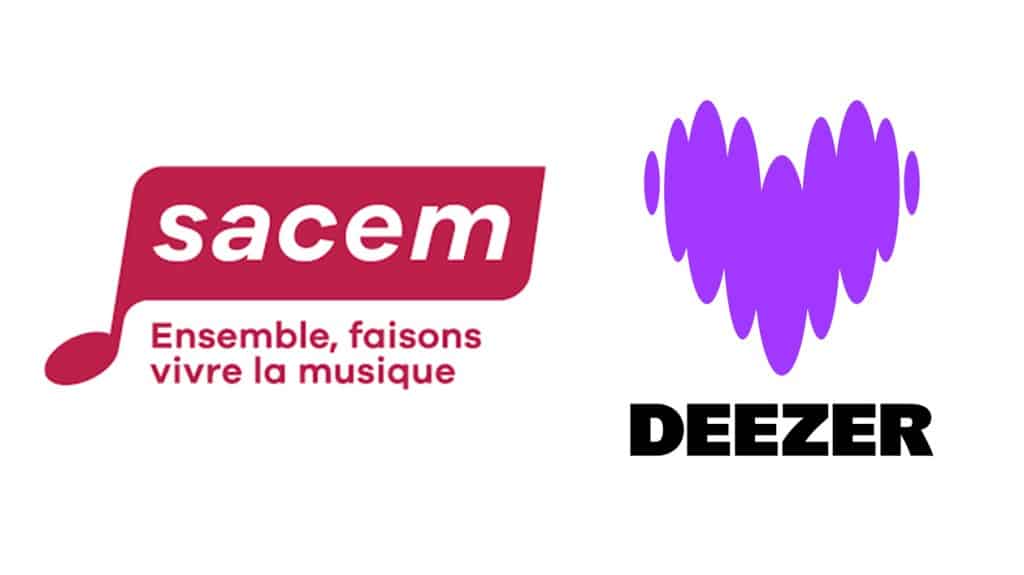Business
Page: 143
The U.S. Supreme Court on Friday (Jan. 17) upheld a federal statute that will effectively ban TikTok from the country over national security concerns, rejecting the company’s arguments that the law violates the First Amendment.
In a unanimous ruling, the high court said the law – set to go into effect on Sunday — was fair game because the U.S. government has valid fears about China’s control over TikTok, a popular social media service with 170 million American users that has also become a key cog in the modern music industry.
Attorneys for TikTok’s Chinese-owned parent ByteDance had argued that the law was clearly unconstitutional because it violates the First Amendment’s protections for free speech. But in Friday’s decision, the high court was unswayed.
Trending on Billboard
“There is no doubt that, for more than 170 million Americans, TikTok offers a distinctive and expansive outlet for expression, means of engagement, and source of community,” the justices wrote. “But Congress has determined that divestiture is necessary to address its well-supported national security concerns regarding TikTok’s data collection practices and relationship with a foreign adversary.”
The ruling has major implications for the music industry. TikTok has become a key part of the modern music ecosystem – a core promotional tool for labels and a jumping off point for many new artists, albeit one that has occasionally butted heads with rights owners and can sometimes prove difficult to harness into lasting success.
Friday’s decision will allow the ban to go into effect on Sunday, but it’s unclear exactly what will happen next. President-elect Donald Trump, set to take office on Monday, has vowed to “negotiate a resolution” to save the platform. And even outgoing President Joe Biden, who championed and signed the law, has reportedly signaled openness to prevent TikTok from going dark.
The TikTok law, which requires the app’s Chinese-owned parent ByteDance to either sell the app to a U.S. company or face a total ban on January 19, was approved by wide bipartisan majorities in Congress last year and signed by President Biden in April. Proponents have argued that TikTok presents a national security threat because of its connections to the Chinese government and access to millions of Americans.
TikTok and ByteDance sued in May, calling the law “unprecedented” violation of free speech aimed at “silencing” more than 170 million Americans. But in December, a lower federal appeals court rejected those arguments, ruling the law was aimed at protecting Americans from a “foreign adversary nation.”
Friday’s decision upheld that ruling, repeatedly stressing concerns about the Chinese government’s control over TikTok and the information it could pull from it.
“Petitioners do not dispute that the Government has an important and well-grounded interest in preventing China from collecting the personal data of tens of millions of U. S. TikTok users,” the justices wrote. “Nor could they. The platform collects extensive personal information from and about its users.”
Much of the ruling – a so-called “per curiam” decision that was not signed by any particular justice – was spent deciding on the level of “scrutiny” that such a ban should face under the First Amendment. While TikTok’s attorneys argued it was the kind of egregious intrusion into free speech that merits “strict scrutiny” by judges, the high court instead ruled that the law was the kind of less-problematic restriction that warrants only “intermediate scrutiny.”
Under that looser standard, the justices ruled Friday that the TikTok ban passed constitutional muster — deciding that the law served an “important government interest” and didn’t restrict free speech any more than was necessary to accomplish that goal.
The federal government was clearly justified in preventing a foreign adversary from “collecting vast swaths of sensitive data about the 170 million U. S. persons,” the justices wrote. And they said the TikTok ban was sufficiently limited in addressing that specific goal to avoid violating the First Amendment.
“Rather than ban TikTok outright, the Act imposes a conditional ban,” the justices write. “The prohibitions prevent China from gathering data from U. S. TikTok users unless and until a qualified divestiture severs China’s control.”
The government had also separately argued that the TikTok ban was fair game because of the power China could wield by using TikTok’s algorithm to influence Americans. But the justices effectively sidestepped that argument in their decision, saying it was not necessary to decide the case.
Ahead of Friday’s ruling, the music industry was already preparing for such an outcome. As Billboard‘s Elias Leight writes, record labels have been gearing up for the potential of life without TikTok: “Where is new artist discovery happening in 2025 if this app completely disappears?” The live music business has also been preparing to lose the platform, Billboard’s Dave Brooks writes, since festivals and other promoters have increasingly relied upon TikTok in recent years to reach ticket buyers.
Read the Supreme Court’s full decision here.
President Joe Biden won’t enforce a ban on the social media app TikTok that is set to take effect a day before he leaves office on Monday, a U.S. official said Thursday, leaving its fate in the hands of President-elect Donald Trump.
Congress last year, in a law signed by Biden, required that TikTok’s China-based parent company ByteDance divest the company by Jan. 19, a day before the presidential inauguration. The official said the outgoing administration was leaving the implementation of the law — and the potential enforcement of the ban — to Trump.
The official spoke on condition of anonymity in order to discuss internal Biden administration thinking.
Trending on Billboard
Trump, who once called to ban the app, has since pledged to keep it available in the U.S., though his transition team has not said how they intend to accomplish that.
TikTok CEO Shou Zi Chew is expected to attend Trump’s inauguration and be granted a prime seating location on the dais as the president-elect’s national security adviser signals that the incoming administration may take steps to “keep TikTok from going dark.”
Incoming national security adviser Mike Waltz on Thursday told Fox News Channel’s “Fox & Friends” that the federal law that could ban TikTok by Sunday also “allows for an extension as long as a viable deal is on the table.”
The push to save TikTok, much like the move to ban it in the U.S., has crossed partisan lines. Senate Democratic Leader Chuck Schumer said he spoke with Biden on Thursday to advocate for extending the deadline to ban TikTok.
“It’s clear that more time is needed to find an American buyer and not disrupt the lives and livelihoods of millions of Americans, of so many influencers who have built up a good network of followers,” Schumer said Thursday on the Senate floor.
Democrats had tried on Wednesday to pass legislation that would have extended the deadline, but Republican Sen. Tom Cotton of Arkansas blocked it. Cotton, chair of the Senate Intelligence Committee, said that TikTok has had ample time to find a buyer.
“TikTok is a Chinese Communist spy app that addicts our kids, harvests their data, targets them with harmful and manipulative content, and spreads communist propaganda,” Cotton said.
TikTok CEO’s is expected to be seated on the dais for the inauguration along with tech billionaires Elon Musk, who is CEO of SpaceX, Meta CEO Mark Zuckerberg, OpenAI CEO Sam Altman and Amazon founder Jeff Bezos, according to two people with the matter. The people spoke on condition of anonymity to discuss internal planning.
Last week, the Supreme Court heard oral arguments in a legal challenge to the statute brought by TikTok, its China-based parent company ByteDance, and users of the app. The Justices seemed likely to uphold the law, which requires ByteDance to divest TikTok on national security grounds or face a ban in one of its biggest markets.
“If the Supreme Court comes out with a ruling in favor of the law, President Trump has been very clear: Number one, TikTok is a great platform that many Americans use and has been great for his campaign and getting his message out. But number two, he’s going to protect their data,” Waltz said on Wednesday.
“He’s a deal maker. I don’t want to get ahead of our executive orders, but we’re going to create this space to put that deal in place,” he added.
Separately on Wednesday, Pam Bondi, Trump’s pick for attorney general, dodged a question during a Senate hearing on whether she’d uphold a TikTok ban.
Trump has reversed his position on the popular app, having tried to ban it during his first term in office over national security concerns. He joined TikTok during his 2024 presidential campaign and his team used it to connect with younger voters, especially male voters, by pushing content that was often macho and aimed at going viral. He pledged to “save TikTok” during the campaign and has credited the platform with helping him win more youth votes.
Verve Records and Impulse! Records are launching a new vinyl subscription service that will send members exclusive limited-edition pressings of albums by jazz greats, the Universal Music Group-owned labels announced Friday (Jan. 17).
Dubbed Verve Record Club, the service will give subscribers “exclusive access to legendary recordings, meticulously reissued on high-fidelity vinyl” on a monthly basis, per a press release. The first release, scheduled for February, will be John Coltrane Quartette: Coltrane, an early release for Impulse! Records.
“This is more than a subscription service; it’s an entryway into the heart of jazz history,” said John Pinder, vp of revenue and consumer acquisition for Verve Label Group, in a statement. “With the Verve Record Club, we’re inviting fans to rediscover these extraordinary recordings in a way that honors their artistry and legacy, with the highest quality sound and presentation.”
Trending on Billboard
Added Ken Druker, senior vp of jazz development at Verve Label Group: “We’re thrilled to bring these classics — and some hidden gems — back to life with an exhaustive attention to detail. It’s an exciting time for jazz fans everywhere.”
Courtesy Image
Members of Verve Record Club will receive limited-edition pressings created from analog sources and pressed on 180-gram vinyl at RTI, packaged in numbered, tip-on jackets. Only 2,500 copies will be pressed for each release. Additional perks for members include an annual member-exclusive release, early access to upcoming titles and unique merchandise.
The current release schedule also includes albums featuring Nina Simone, Louis Armstrong, Bill Evans, Ella Fitzgerald, Stan Getz and Billie Holiday, with releases for Ahmad Jamal and Sarah Vaughan also forthcoming. In addition to Verve and Impulse!, Verve Record Club will offer members “a deep dive into the vaults” of labels including Mercury, CTI, Decca, MGM and others, according to the release.
You can check out the current release schedule below. Visit the official Verve Record Club website to learn more.
February – John Coltrane Quartette: Coltrane
March – Nina Simone: High Priestess of Soul
April – Louis Armstrong: Hello, Dolly!
May – Bill Evans: Empathy
June – Ella Fitzgerald: Ella Swings Gently with Nelson
July – Stan Getz
August – Billie Holiday: Stay with Me
The first Billboard Live club in Taiwan is slated to open this fall in the city’s bustling Xinyi District. The news was announced on Friday (Jan. 17), detailing a licensing agreement between Billboard parent company Penske Media Corporation and Credo Holdings, Ltd., a leading hospitality company headquartered in Shinjuku, Tokyo.
Explore
Explore
See latest videos, charts and news
See latest videos, charts and news
Credo has secured the operational rights for the Billboard Live Taipei outpost, which will be located on the seventh floor of the ATT 4 Fun building in the busy financial/fashion district that is home to a number of luxury hotels and restaurants as well as the annual Taipei New Year’s Eve countdown party and fireworks display.
Billboard Live — originated by Hanshin Contents Link Corp., which holds the master license for the brand in Japan — hosts live performances by internationally known artists at locations in Tokyo, Osaka and Yokohama, Japan, as well as alternate format versions in Shanghai and Nanjing, China. Among the global stars who’ve performed at Billboard Live in Japan are: Steely Dan, Babyface, David Foster, KISS’ Paul Stanley, Chaka Khan, Kool & the Gang and the Beach Boys.
Trending on Billboard
The aim is to provide an immersive, up-close experience with a variety of acts, from new, local talent to international legends, with each venue’s bill featuring carefully curated lineups reflecting the 131-year-old publication’s storied history covering all aspects of the music industry.
Like the other clubs, Billboard Live Taipei will feature live performances from top Japanese, Korean, U.S., European and Taiwanese acts, with the venue aiming to promote musical exchanges between Taiwanese and international artists. The intimate, 300-seat venue with a state-of-the-art sound system and gourmet restaurant is also part of Billboard‘s mission to advance the international presence of music cultures around the world.
Click here for more details on the new club.
In fall 2023, Deezer announced it was adopting an “artist-centric” royalty model with Universal Music Group (UMG) in an effort to better compensate acts with significant followings and the rightsholders who own their recordings. That move, intended to tackle fraud and reduce royalties flowing to what is essentially noise and “functional music” was intended to rebalance a streaming model that some major players believe needs reform. Other major labels followed, as did Spotify, which made different adjustments to its royalty model toward the same end.
On Wednesday (Jan. 15), Deezer and the French PRO SACEM announced a deal to compensate publishing rightsholders the same way. “We started a year and a half ago with UMG and then the other majors,” said Deezer CEO Alexis Lanternier. “And now we’re doing it on the publishing side.”
Trending on Billboard
SACEM’s interest in this idea goes back to an analysis of the potential effects of artist-centric royalty payouts that the PRO conducted last year. “The first thing I wanted was to remove noise from the revenue, especially at a time when dilution is an issue” said SACEM CEO Cécile Rap-Veber, “The second thing is that it helps prevent fraud.”
While Deezer will not remove any music from its platform as a result of this agreement, the service will either demonetize or essentially allocate less royalties to some tracks, by boosting the royalties earned by others. The change, which will take effect soon, could help labels and services better prepare for the age of AI, when music executives worry that online services will be flooded by unpopular, low-value music that cuts into their business with sheer scale. “With AI coming,” Rap-Veber says, “we’re afraid that human creation might be affected.”
Deezer’s specific plans are more ambitious than what it did on the recording side. Like other artist-centric models, artists get a royalty boost for hitting a measure of popularity — in this case, double royalties for songs that are actively searched out or those by artists with 1,000 streams a month from 500 different subscribers.
More interesting, the service will impose what it calls a “user centric cap” that will limit how much the listening choices of any individual subscriber can affect royalty payouts, which will also make fraud more difficult and less efficient. Also, Deezer will completely exclude from the royalty pool tracks that consist of noise and “functional sounds,” such as rain on a roof; instead, Deezer will recommend similar music that it owns, which will not count for payout purposes and thus not take royalties from other rightsholders. (Some of these tracks might not even be considered copyrighted works under EU law, at least on the publishing side. While recording the sound of rain on a roof might arguably involve creative choices, there is no composer in the sense of copyright law.) Deezer will also remove tracks that have not been streamed in a year.
Tim Finn, the celebrated New Zealand singer and songwriter, has signed a worldwide publishing deal with Kobalt.
Announced this week, Kobalt will administer Finn’s entire catalog of songs, which includes Split Enz’s “I Hope I Never,” “I See Red” and “Six Months In A Leaky Boat,” and “I Got You,” which reached No. 53 on the Billboard Hot 100 in 1980. Also included is Crowded House’s “Four Seasons In One Day,” “It’s Only Natural,” and “Weather With You,” plus solo works.
“We are thrilled to announce this new partnership with Tim Finn, a legendary figure in the world of music,” comments Simon Moor, managing director of Kobalt for the APAC region. “From his groundbreaking work with Split Enz to his contributions to Crowded House and his illustrious solo career, Tim has consistently showcased his incredible songwriting talent.”
Adds Finn: “Simon Moor and his team at Kobalt are energized music lovers. I’m excited to see what we can do together. It feels like a new chapter is waiting to be written for me and my songs.”
Trending on Billboard
Finn formed Split Enz in his homeland in the early 1970s. By the time Split Enz called it a day in December 1984, the band had banked a treasure chest of hits, including “Message to My Girl,” “My Mistake” and “Dirty Creatures”.
At that stage, Finn had already launched his solo career. His debut from 1983, Escapade, cracked the Billboard 200, peaking at No. 161.
Finn briefly joined forces with his younger brother and former Split Enz bandmate Neil on the third Crowded House project, Woodface, released in 1991. Woodface hit No. 82 on the Billboard 200.
A told, four Split Enz albums crashed the U.S. albums tally and the band was inducted into the ARIA Hall of Fame in 2005. Crowded House’s elevation came in 2016.
Finn’s latest work has included songs and soundtracks for film, television and musical theater, including Ladies in Black, for which he received a Helpmann Award for best new Australian work. His most recent solo album, 2021’s Caught by the Heart, is a collaboration with Roxy Music guitarist Phil Manzanera, who produced the Split Enz album from 1976, Second Thoughts.
Boasting 13 global offices, Kobalt serves over 1 million songs, representing the likes of Roddy Ricch, Max Martin, Karol G, Andrew Watt, Stevie Nicks, Phoebe Bridgers, The Lumineers, Foo Fighters, Paul McCartney and others.

It was the morning of Jan. 8, and Los Angeles was burning.
As wildfires decimated the city’s Pacific Palisades and Altadena neighborhoods, many evacuees from those areas posted urgent updates on social media saying they and their families had just fled homes that, for many, no longer existed.
Angelenos living outside areas where fires were actively burning watched with dread as dark smoke blotted out the sun in areas across town, wondering how they could help their friends and if they might be next. As many took action to help, one longtime music publicist started doing what she does best: organizing information.
“I was literally in shock and horror,” says the publicist, who’s requested anonymity. “I saw a lot of names who I knew that had lost their homes, so I just opened a spreadsheet and labeled it ‘fire victims.’ I started putting the names down, and then I put a post online saying, ‘Let’s keep track of the music and musician community, especially for fundraising.’”
A list that started with 10 names now — as of publication on Thursday (Jan. 16) — contains 365, nearly all of them listed with corresponding GoFundMe links. The list has helped raise a collective $13 million in donations in the eight days since its creation, the publicist says.
The spreadsheet was originally an open-source document anyone could add to, but when the publicist woke up on the morning of Jan. 9 and opened it, she saw that “every single person’s name was missing and everything was sorted incorrectly, and that just wasn’t going to work.” There were also a few hours when every name on the list was accidentally deleted, after which the document was made read-only.
At this point, the publicist thought about creating a submission page but then reconsidered, thinking people reaching out to add their names “needed more of a human interaction.” Instead, she directed people to reach out to her directly and was soon receiving new names — along with other data like the number of people and pets living in the house, their affiliation to the music business and their needs — via email, text and across social accounts.
“I started typing them in by hand and working on it pretty much all day over the weekend,” she says. (Editor‘s note: A submission page was ultimately added. If you or someone you know has been affected by the fires and would like a name added to the list, submit the info here.)
Then Zac Matthews, chairman of the music department at Pasadena City College, reached out and offered to help. Matthews is not only helping manage the list but adding names from the broader musical community.
“When I first saw the growing list, it became an invaluable source of information about friends and colleagues in need,” Matthews says. “I implemented a few improvements to make it quicker and easier to add people and have been working on keeping it up-to-date and gradually more functional. While it’s gratifying to feel like I’m contributing in some way during this time, it still feels small in the face of such an immense tragedy — but it’s something… I hope our efforts have played some part in inspiring this remarkable outpouring of generosity.”
The list is now being run by a small team, with assistance from Los Angeles NPR affiliate KCRW, which is hosting additional tabs that include a benefit concert calendar and forms to contribute or find equipment donations and pro-bono studio time.
GoFundMe itself also reached out to assist with vetting the GoFundMes and making sure none of them were fraudulent. (As far as the publicist knows, none were, although one was removed at the request of the recipient as they felt their need wasn’t as great as others.) The company is also developing a column for the list that will automatically update how much money each individual GoFundMe has raised, along with the collective amount.
“At GoFundMe, we continue to be inspired by our community’s kindness, generosity and empathy, especially in moments like this,” a representative for the company tells Billboard. “These grassroots organizers compiling lists for communities have helped create a ripple effect of good by further amplifying fundraisers to help provide even more support for people in need.”
As the list has grown, it’s also expanded to include information regarding the possibility of FEMA and insurance companies monitoring the fundraisers and the potential of this affecting eventual payouts from these entities, with the list offering recommended wording to avoid this. It also contains links to similar spreadsheets for Black families, Latino families and Filipino families displaced by the fire, along with one listing domestic workers who’ve lost their employment.
“It’s so hard to leave thousands of people off this [music business] list,” says the publicist. “But it lets everyone start with their community. The mutual aid is so strong in L.A.”
The publicist has heard some criticism from people who’ve argued that the list contains names of “all the privileged people,” which she stresses is not true. “There are so many musicians of various stripes, colors and ages on this, from every genre,” she says. “Yes, there are some people of more privilege here, but by and large, a lot of these people are just families getting by. They’re music teachers, cellists, piano teachers, composers. It’s such a wide swath of the music business.”
Matthew Willems, a producer and label owner who, along with his girlfriend, lost everything after their one-bedroom apartment burned down in the Altadena fire, and whose name is on the list, says that in terms of immediate financial aid, “The only thing that’s really working is my GoFundMe.”
The publicist also notes that some of the particularly affluent people who’ve lost everything in the fires are not doing GoFundMes given that they’re able to deal with the situation with the financial resources they already have.
But, she says, “I think we have to have a lot of empathy for even the richest people that lost everything they loved and worked for — family photos, mementos, jewelry that their grandmother passed down. So much is gone from people, both rich and poor, that we have to have empathy for everybody. But we have to have monetary empathy for the working class.”
The willingness to help thus far is unabated. During the list’s eight days of existence, there’s always been between 20 and 150 people looking in the document at any given moment.
“You can’t even use the [updating] tools,” the publicist says, “because there’s too much traffic.”
Nelly is asking a federal judge to punish the lawyers who recently sued him over his 2000 debut album Country Grammar, arguing the case is “objectively frivolous” and should “never have been brought in the first place.”
The lawsuit, filed last year, claims Nelly (Cornell Haynes) has failed to pay his former St. Lunatics bandmate Ali for his work on the album. But in a new motion Thursday (Jan. 16), Nelly’s attorneys say those decades-old allegations are so “baseless” that Ali and his lawyers must face legal penalties for filing them.
“Plaintiff and his counsel should be sanctioned in the full amount … that Haynes has been forced to incur in defending this action,” the rapper’s lawyer Ken Freundlich writes. “That is because plaintiff’s claims should never have been brought in the first place.”
Trending on Billboard
Freundlich says that if Ali’s attorneys (Gail M. Walton and Precious Felder Gates) had done “even the barest factual investigation and legal research,” they would have found fatal flaws in the lawsuit — most notably that it was filed years after the statute of limitations had expired. Instead, he says they doubled down after such shortcomings were exposed.
“Plaintiff and his counsel’s failure to withdraw their fatally flawed claims, and their insistence on pressing forward with frivolous assertions and legal arguments require a substantial sanction,” Nelly’s lawyers write. “[This is] not only to compensate Haynes for the substantial legal fees and expenses he has been forced to incur in defending this action, but also to deter plaintiff and others who would flout the Copyright Act’s rules and clear undisputed court precedent.”
In a response statement to Billboard on Thursday, Felder Gates said Ali’s legal team would “vehemently defend” against Nelly’s motion and would continue to pursue their client’s “undeniable right to be properly compensated” for his alleged work on Country Grammar: “It is both unethical and unlawful for artists and their corporate partners to exploit the creative work of writers, deceiving them out of their rightful credits and fair compensation.”
Nelly rose to fame in the 1990s as a member of St. Lunatics, a hip-hop group also composed of St. Louis high school friends Ali (Ali Jones), Murphy Lee (Tohri Harper), Kyjuan (Robert Kyjuan) and City Spud (Lavell Webb). With the June 2000 release of Country Grammar — which spent 5 weeks atop the Billboard 200 — Nelly broke away into a solo career that later reached superstar heights with his 2002 chart-topping singles “Hot in Herre” and “Dilemma.”
In a copyright lawsuit filed in September in Manhattan federal court, all four of those bandmates accused Nelly of cheating them out of compensation for contributions they allegedly made to Country Grammar. They claimed that he had “manipulated” them into falsely thinking they’d be paid, then never made good on the promises.
But a month later, the lawsuit took a strange turn: Nelly’s lawyers filed a letter warning that Lee, Kyjuan and Spud had never actually wanted to sue Nelly and that they had not given legal authorization to the lawyers who filed the lawsuit to include them as plaintiffs.
“They are hereby demanding you remove their names forthwith,” Nelly’s lawyers wrote in a letter to Walton. “Failure to do so will cause them to explore any and all legal remedies available to them.”
In November, Ali’s attorneys filed an updated version of the lawsuit listing only him as a client and vowed to fight on: “While others may have chosen to withdraw, his dedication to his artistic legacy and his rights as a creator remains unwavering,” Felder Gates said in a statement to Billboard at the time.
But in Thursday’s motion, Nelly’s attorneys argue that the case has deeper problems than simply improper plaintiffs.
They say the lawsuit was filed many years after the Copyright Act’s three-year statute of limitations had expired since Nelly had clearly “repudiated” Ali’s demand for payment years before he filed his case. And they say that when Ali’s attorneys refiled the case under just his name, they tried to sneakily remove certain dates to “hide” that fatal flaw.
“Plaintiff omits the dates of repudiation in his [amended lawsuit],” Freundlich says. “This ruse does not save the claim from being time-barred. In fact, all it does is elucidate how Plaintiff and his counsel are engaging in sanctionable conduct.”
As a penalty, Nelly’s lawyers want the judge to order Ali and his attorneys to repay all legal fees and other costs that the star has incurred defending the case. Even for just a few months of copyright litigation, that figure could reach thousands of dollars when top law firms are involved in a case.

Sony Music Entertainment acquired Czech Republic-based record label Supraphon, furthering its expansion in Central Europe. The Supraphon roster includes recordings from artists such as Karel Gott, Lucie Bílá, Marek Ztracený, Škwor, Olympic, Hana Zagorová and Václav Neckář. A press release states that the Czech music market notched recorded music revenue of $84.1 million in 2023, with streaming boasting 60.1% of the total market with a volume of $50.5 million — an 18% increase from the prior year. The release adds that seven out of the top 10 songs and albums in the country in 2023 were put out by Czech artists. Libor Holeček will continue leading Supraphon as MD, Martin Kudla will remain as executive director and Iva Milerová, who was previously chairwoman of board of directors, will continue on in an advisory role.
Warner Music Italy and Warner Chappell Music Italy signed a deal to acquire the catalog of DWA Records, a leading Italo Disco label co-founded in 1989 by singer-songwriters and producers Roberto Zanetti and Francesco Bontempi. The agreement also encompasses the catalog of Extravaganza, DWA’s music publishing business. DWA’s catalog includes more than 250 masters including “The Rhythm of the Night” performed by Corona and written by Bontempi; “Happy” and “Uh La La” by Alexia; and “Baila” performed by Zucchero and written by Zanetti.
Trending on Billboard
MENA streaming service Anghami announced a new round of funding from OSN Group of up to $55 million, with a $12 million initial investment in a convertible note program. OSN and Anghami struck an initial partnership in April 2024, merging OSN+’s video streaming capabilities and 18,000 hours of content with Anghami’s portfolio of 100 million songs and podcasts. The companies claim video streaming subscribers grew 41% between April and October 2024. The new funds will allow the platforms to expand their content library, enhance the user experience using new technologies and strengthen their presence in the MENA region. It will additionally be used to implement innovations including AI-driven personalization.
Symphonic Distribution signed a global distribution deal with Taiwanese indie label Kafka By the Sea, whose roster includes Taiwanese rock band KST and indie-pop band Bubble Tea and Cigarettes. The first release under the pact was Sherry Z’s debut album Time.
Decentralized music community and discovery platform Audius struck a multi-territory licensing agreement with International Copyright Enterprise (ICE). The new deal establishes a pathway for more than 330,000 rights holders to receive royalties when their music is used on Audius in sub-Saharan Africa and Asia Pacific, among other territories.
U.K.-based live entertainment company ATG Entertainment acquired SOM Produce, a theater producer, operator and distributor based in Spain. Financial terms were not disclosed for the deal. SOM Produce, headquartered in Madrid, is a leading global producer and distributor of musicals and plays in the Spanish language. It manages five theaters in the center of Madrid — including Nuevo Teatro Alcalá, Teatro Rialto, Teatro Nuevo Apolo, Teatro Calderón and Teatro Amaya — and has produced more than 20 shows, including Mamma Mia!, The Book of Mormon, West Side Story, Grease, Chicago and Cabaret. ATG is majority owned by Providence Equity Partners.
Classical music label Pentatone signed a licensing partnership with Dutch promotion and distribution platform Collabhouse, which launched a pre-cleared artist music library in November. Through the deal, Pentatone will provide its entire public domain catalog to a broader community of creators, allowing composers, filmmakers, advertisers and more to work with musical works by composers including Beethoven, Bach, Tchaikovsky, Mozart, Vivaldi and more, “all interpreted by the most renowned artists,” according to a press release.
The Peoria Civic Center Authority and Prairie Home Alliance secured a naming-rights agreement for the 2,200-capacity theater within Peoria Civic Center for seven years. The venue will now be known as the Prairie Home Alliance Theater. Prairie Home Alliance is a locally owned and operated group of 10 home improvement companies across central Illinois. This is the first naming rights deal for the theater in its 42-year history.
Danish microphone producer DPA Microphones acquired the majority share of Vienna-based audio products company Austrian Audio. According to a press release, DPA is a leading manufacturer within several miniature microphone categories while Austrian Audio is strong in the large diaphragm microphone market. “Together, the brands provide a broader product range for discerning sound engineers in industries like broadcast, musical, theatre, live events and recording studios,” states a press release announcing the deal. “By joining forces, the brands will design and develop sophisticated, professional audio solutions that meet the evolving demands within the acoustical and digital fields, all while prioritizing the user experience.”
Spotify announced that it has canceled all of its Grammy Week events, including its annual Best New Artist and Songwriter of the Year parties, in light of the devastating L.A. wildfires.
In a blog post on Thursday (Jan. 16), Joe Hadley, Spotify’s global head of music partnerships & audience, wrote that funds from the canceled events will be redirected “to support efforts to reach local fans and charitable organizations.”
“It’s also important to remember the effect this has on the production industry, so we are ensuring our vendors are compensated despite this shift,” Hadley wrote. “While this year will look and feel different, our commitment to emerging artists is unwavering.”
Trending on Billboard
Hadley notes that Spotify’s charitable efforts will include Spotify-funded donations to MusiCares and FIREAID, the benefit concert slated for Jan. 30 at the Intuit Dome that will donate proceeds to rebuilding L.A. infrastructure, supporting displaced families and advancing fire prevention technologies and strategies. The company will also be joining with GoFundMe “to support and spotlight fundraisers dedicated to helping members of the artist and music community who’ve been affected by the fires.”
Additionally, Spotify will be “dedicating on-platform promotion and offering pro bono ad inventory to drive awareness of causes supporting the relief and artist and creator support via studio time” at the company’s L.A. headquarters located in the Arts District.
“The summation of these efforts means we are committing a combined total of $5 million,” Hadley wrote.
Thursday’s announcement follows previous Grammy Week cancellation announcements by all three major labels and various other companies and organizations following the horrific blazes, which displaced tens of thousands of Angelenos and killed at least 25. The remaining Grammy Week events, including Clive Davis’ annual gala, have been reframed as fundraisers for wildfire victims. The Grammys themselves are still slated to move ahead on Feb. 2.
You can read Hadley’s letter in full below.
The devastation of the past week is hard to put into words. I’ve lived in Southern California for 20 years, and my heart aches for our community. Los Angeles is home to hundreds of Spotify employees, millions of music fans, and countless individuals whose lives have been upended by this unprecedented crisis.
We’ve spent the last few days considering how to best show up for LA, the music industry, and the creative community. Ultimately, we’ve decided that the most impactful approach is canceling all our Grammy Week events, including our annual Best New Artist party, and redirecting funds to support efforts to reach local fans and charitable organizations. It’s also important to remember the effect this has on the production industry, so we are ensuring our vendors are compensated despite this shift. While this year will look and feel different, our commitment to emerging artists is unwavering.
These efforts include Spotify-funded donations to MusiCares, an organization that provides a safety net of critical assistance in times of need, and FireAid, a benefit concert on January 30 with proceeds centered on rebuilding infrastructure, supporting displaced families, and advancing fire prevention technologies. We’re also joining forces with GoFundMe to support and spotlight fundraisers dedicated to helping members of the artist and music community who’ve been affected by the fires. In addition to these donations, we’re dedicating on-platform promotion and offering pro bono ad inventory to drive awareness of causes supporting the relief and artist and creator support via studio time at our LA office in the Arts District. The summation of these efforts means we are committing a combined total of $5 million.
Thanks to all of our partners for your patience as we decided how best to support. We’ve got each other’s backs here in L.A. – let’s keep showing up for each other.
Joe

 State Champ Radio
State Champ Radio 







